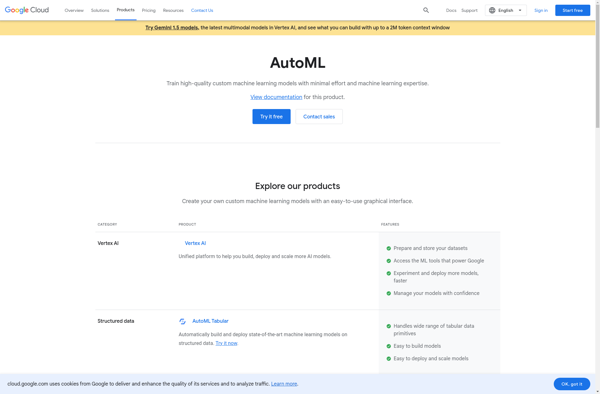The Microsoft Cognitive Toolkit

Microsoft Cognitive Toolkit: Open-Source Deep Learning Framework
The Microsoft Cognitive Toolkit is an open-source deep learning framework developed by Microsoft. It allows developers and data scientists to build and train artificial neural networks for applications like image recognition, speech recognition, and natural language processing.
What is The Microsoft Cognitive Toolkit?
The Microsoft Cognitive Toolkit (previously known as CNTK) is an open-source deep learning framework created by Microsoft. It allows developers and data scientists to build neural networks and train them using large datasets.
Some key features of the Cognitive Toolkit include:
- Efficiency with large datasets - It can scale efficiently across multiple GPUs and servers.
- Flexible model construction - You can easily customize neural networks with different layer types and architectures.
- Multiple programming languages - Supports description of models in Python, C++, C# and BrainScript.
- Pre-built models - Comes with several pre-trained neural network models for common tasks like image classification.
- Integration with Azure services - Seamless integration with cloud services like Azure Machine Learning and Cognitive Services.
- Cross-platform availability - Can be used on Windows, Linux and Mac OS.
The Microsoft Cognitive Toolkit is used worldwide by researchers and companies to develop state-of-the-art deep learning solutions for speech, vision, language and more. Its speed, flexibility and Azure integration make it a popular choice over alternatives like TensorFlow and PyTorch.
The Microsoft Cognitive Toolkit Features
Features
- Supports building deep learning models like convolutional neural networks
- Implements popular model architectures like ResNet and AlexNet
- Supports distributed training across multiple GPUs and servers
- Has Python and C++ APIs for model building and training
- Integrates with Azure Machine Learning for deployment
Pricing
- Open Source
Pros
Cons
Reviews & Ratings
Login to ReviewNo reviews yet
Be the first to share your experience with The Microsoft Cognitive Toolkit!
Login to ReviewThe Best The Microsoft Cognitive Toolkit Alternatives
Top Ai Tools & Services and Deep Learning Frameworks and other similar apps like The Microsoft Cognitive Toolkit
Here are some alternatives to The Microsoft Cognitive Toolkit:
Suggest an alternative ❐Deeplearning4j

TensorFlow

CatBoost

Cloud AutoML

Training Mule
Mlpack
